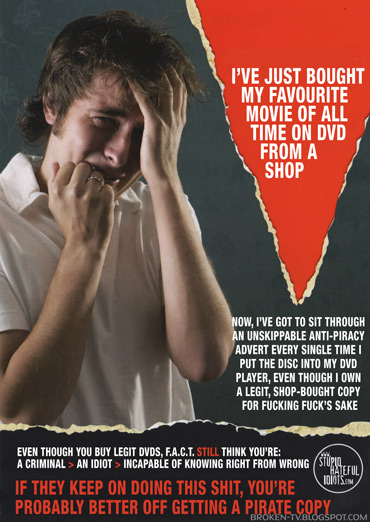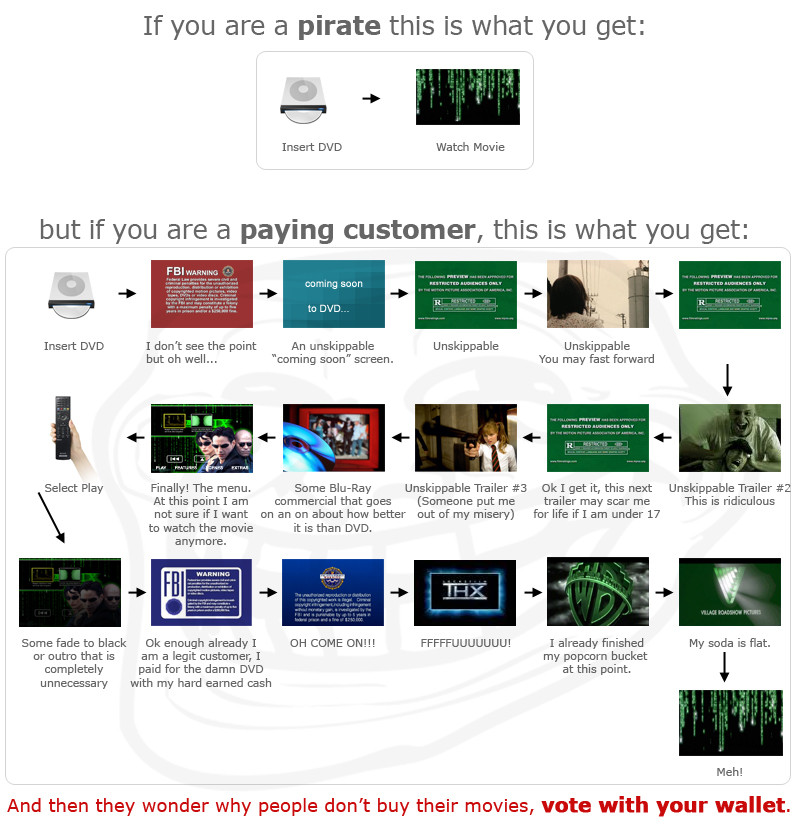In a posting at the Cato@Liberty blog, Julian Sanchez discusses the claims of SOPA/PIPA supporters that new legislation is necessary to fight piracy:
Earlier this month, I detailed at some length why claims about the purported economic harms of piracy, offered by supporters of the Stop Online Piracy Act (SOPA) and PROTECT-IP Act (PIPA), ought to be treated with much more skepticism than they generally get from journalists and policymakers. My own view is that this ought to be rather secondary to the policy discussion: SOPA and PIPA would be ineffective mechanisms for addressing the problem, and a terrible idea for many other reasons, even if the numbers were exactly right. No matter how bad last season’s crops were, witch burnings are a poor policy response. Fortunately, legislators finally seem to be cottoning on to this: SOPA now appears to be on ice for the time being, and PIPA’s own sponsors are having second thoughts about mucking with the Internet’s Domain Name System.
That said, I remain a bit amazed that it’s become an indisputable premise in Washington that there’s an enormous piracy problem, that it’s having a devastating impact on U.S. content industries, and that some kind of aggressive new legislation is needed tout suite to stanch the bleeding. Despite the fact that the Government Accountability Office recently concluded that it is “difficult, if not impossible, to quantify the net effect of counterfeiting and piracy on the economy as a whole,” our legislative class has somehow determined that — among all the dire challenges now facing the United States — this is an urgent priority. Obviously, there’s quite a lot of copyrighted material circulating on the Internet without authorization, and other things equal, one would like to see less of it. But does the best available evidence show that this is inflicting such catastrophic economic harm — that it is depressing so much output, and destroying so many jobs — that Congress has no option but to Do Something immediately? Bearing the GAO’s warning in mind, the data we do have doesn’t remotely seem to justify the DEFCON One rhetoric that now appears to be obligatory on the Hill.
The International Intellectual Property Alliance — a kind of meta-trade association for all the content industries, and a zealous prophet of the piracy apocalypse, released a report back in November meant to establish that copyright industries are so economically valuable that they merit more vigorous government protection. But it actually paints a picture of industries that, far from being “killed” by piracy, are already weathering a harsh economic climate better than most, and have far outperformed the overall U.S. economy through the current recession. The “core copyright industries” have, unsurprisingly, shed some jobs over the past few years, but again, compared with the rest of the economy, employment seems to have held relatively stable at a time when you might expect cash-strapped consumers to be turning to piracy to save money.





